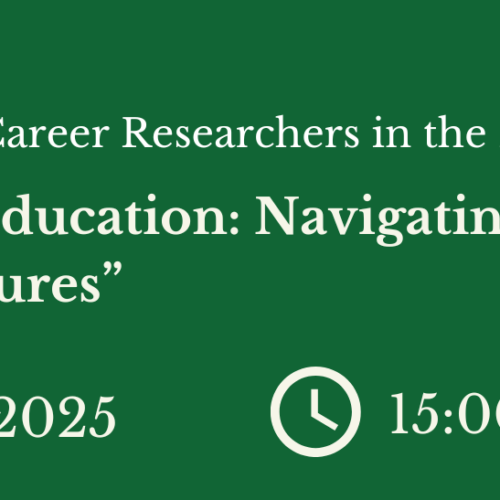Public Histories of Education (2023 – 2028)
Convenors: Gianfranco Bandini (Italy), Sjaak Braster (The Netherlands), Francisca Comas Rubí (Spain), Karin Priem (Luxembourg), Sian Roberts (United Kingdom)
Public Histories of Education – Annual Report 2023
Description and Main Objects: Although we have been talking about Public History for decades, we can now say today that it is a topic of great interest and topicality (Sevcenko, 2022; Noiret et al., 2022; Cauvin, 2022). In 1978, Robert Kelley linked Public History to the development – based on thematic knowledge – of research lines and specific studies linked to collective interests emerging from society rather than academia. In general, he made a connection between Public History and historians using the historical method outside academe (Kelley, 1978). Over the years, the concept of Public History has expanded, connecting with oral history, studies on collective memory and cultural heritage, or the so-called ‘history from below’ (Myers et al., 2018). In turn, not only was the choice of subjects to study reconsidered, but the entire process of historical reconstruction itself, aimed at being more participatory and collaborative thanks to cooperation between academic historians and society (Frisch, 1990; Noiret et al., 2022). Today, Public History seems to have ushered in an era of shared authority between academics, the public and community participation, making historical knowledge and narratives more inclusive and democratic (Facer et al., 2017; Ayers, 2018).
Historians of education have witnessed this evolution in Public History, although only in recent years have they included it on their own research agenda. Nonetheless, and looking back, we can see how educational historians who have been working for years with multiple audiences connected by an interest in history, memory and heritage, not only worked outside the academy and for the public, but did so in collaboration with these same audiences, sharing both the process and the final product with them.
Nowadays, there is a rapidly expanding interest in knowing how to produce a Public History of Education. Historiographical traditions developed in different contexts and countries to produce a history of education for and alongside the public are attempting to connect with the most topical trends in Public History. This is aided by the increasing digitisation of freely accessible resources on the web, providing information not only to educational historians but also to groups or individuals in general, in addition to the use of social media to connect audiences and share knowledge, memories and testimonies on issues with a shared common interest.
The dissemination of an increasingly pervasive mass media means scientific research results must be effectively communicated through television, radio, the web, and social networks. Nevertheless, very different communication techniques are now required in comparison to those used until now by traditional scientific communication. For this reason, we need to set a new paradigm of historical mediation in line with the model of Public Communication of Science and Technology (PCST). This model comprises high-quality scientific outreach that is able to transmit historical knowledge to a wider public, with a view to countering pseudo-scientific approaches to the past – a source of many misconceptions and trivialisation.
In recent years, those of us proposing this Standing Working Group (SWG) – in close collaboration with other researchers in our network – have actively participated in the Public History of Education field, and its national and international expansion.
The new book series Public History in European Perspective edited by Thomas Cauvin and Karin Priem (De Gruyter Oldenbourg); the inception of the ISCHE Education & Pandemics Archive (Priem et al., 2022); collaboration with community centres in the UK (Gauld et al., 2021); involvement with Public History initiatives in Italy (Bandini, 2017; Bandini, 2019, AIPH, 2020); establishing research into Public History in Spain (Comas et al., 2022); participation in exhibitions (Del Pozo, 2019); editing a volume about public histories of education (Herman et al., 2022), and writing manifestos (Bandini, 2019; Herman et al., 2022) all demonstrate our clear interest in studying and disseminating the Public History of Education.
Keywords: History of Education; Public History; Digital Public History; Historical Narratives; Open Science.
For additional information and to become involved, please contact the convenor: Francisca Comas Rubí (Spain)


